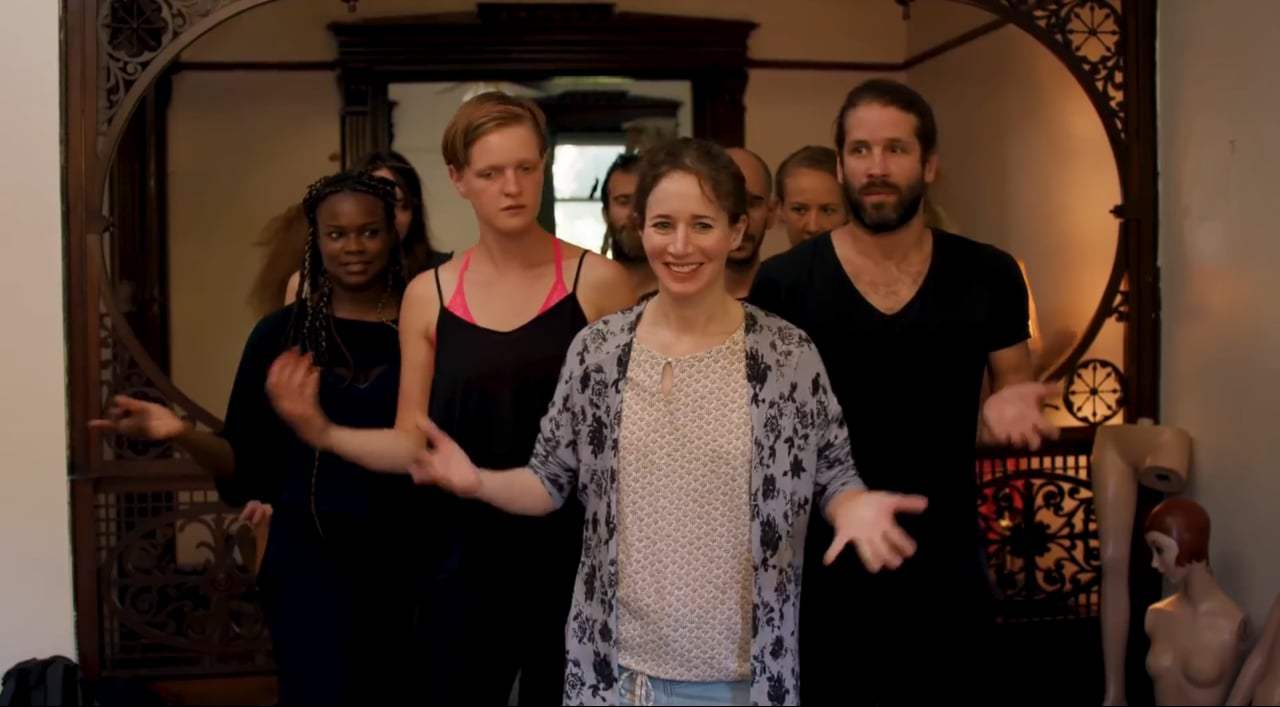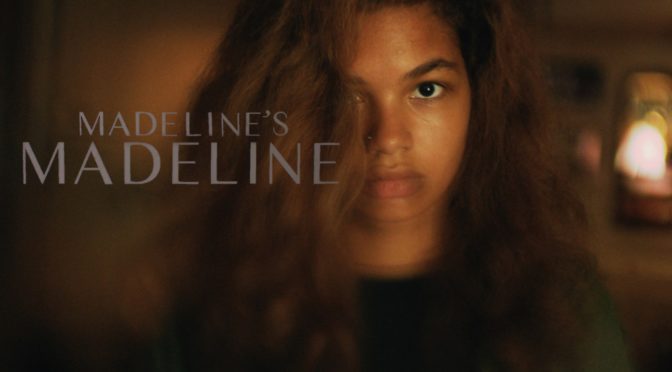Performance art is not the common person’s entertainment and neither is this movie. Director Josephine Decker (Thou Wast Mild and Lovely) has created a 90 minute arthouse piece capable of being enjoyed by only a select few. The film follows a teenage girl, Madeline (Helena Howard), in New York City as she spends her days working in a theater group while being raised by her mother Regina (Miranda July; Me and You and Everyone We Know).
Decker is known for making experimental films and she continues that trend here. The first 15 minutes of the film will be more than enough to alienate the majority of viewers. In the intro, she cuts between a theater group doing abstract warmup exercises and Madeline at home continuing those exercises and the result is completely disorienting. Decker shoots in tight closeups with extremely shallow depth of field. Objects and actors come into and out of focus and a blurry haze often covers the screen while strange vocals fill the soundtrack. The growls and heavy breathing of their warmups become the rhythmic score of the film. At this early stage, the characters and any sort of potential conflict between them have not been introduced yet so the sensory barrage quickly runs out of steam, shifting from jarring to frustrating as we wait for a reason to care about the carefully created cacophony onscreen.

There is a germ of interesting story here about mother/daughter dynamics in the presence of mental issues. Madeline is on a prescription to prevent unexplained “episodes” and her mother also shows signs of instability. Regina is at times overly emotional, being brought to tears over the slightest comment and elsewhere is furious beyond belief. A narrative about a mentally unstable single mother raising her similarly unstable daughter and how the daughter manages her illness using theater as her own personal therapy would have been fascinating, but it is unfortunately not Decker’s focus.
When some semblance of a plot is finally shown, it is pushed to the background. Decker seems most interested in creating an experiential film about theater. That might be appealing to those invested in and familiar with the art, but to outside observers the continued emphasis on their practicing is esoteric, embarrassing, and exhausting. The troupe repeatedly tries different exercises ranging from pretending to be an animal to acting out personal trauma, but not towards any concrete goal. Each additional scene of black-clad performers wears heavily on any remaining patience.
Madeline’s Madeline may not be an enjoyable film to watch, but it’s not quite a failure. Decker has a specific vision of the all-consuming nature of performance art and uses discordant sounds and visuals to create a feeling, rather than a narrative for the audience. She is fortunate to have Howard whose emotional changes are as visible as her physical contortions. At one point, a character quotes Carl Jung and says “In all chaos there is a cosmos, in all disorder a secret order.” Decker has created a chaotic collection of expressionist sounds and visuals about performance art that will strain even patient viewers. There may be a secret order to her film, but only for viewers willing to put up with it – and there won’t be many of those.

2/5 stars.
